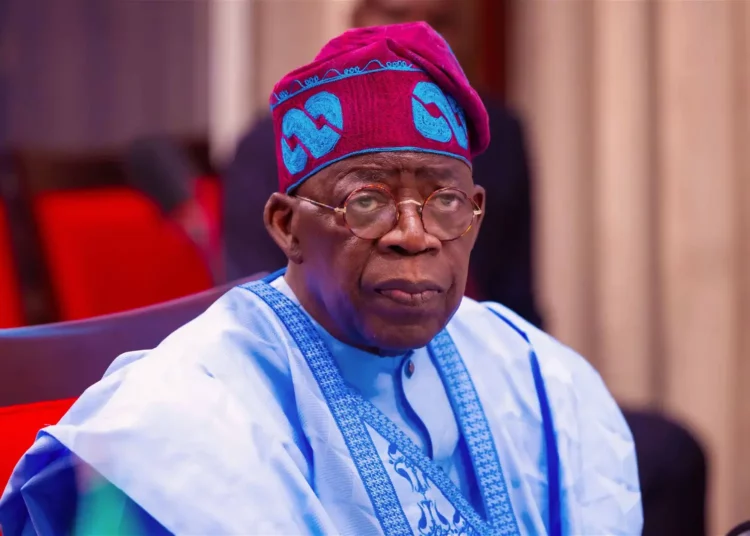When President Bola Tinubu swore in his 45 ministerial appointees soon after his inauguration Nigerians, in measured expectation, believed it marked a historic moment in the country’s political landscape.
With the number later rising to 48, this administration now holds the record for the largest ministerial cohort since the country’s return to democracy in 1999.
In 2015, President Muhammadu Buhari began his first term with 36 ministers, eventually expanding the roster to 42 during his second term.
Former President Goodluck Jonathan, assuming office in 2011, appointed 33 ministers, nine of whom were holdovers from the administration of the late President Umar Yar’Adua. Yar’Adua, for his part, named a 39-member cabinet in 2007, a composition that included seven women.
The arc of Nigeria’s ministerial history stretches back to 1999, when former President Olusegun Obasanjo initially appointed 42 ministers in his bid to stabilise a fragile democracy.
Over the course of his two terms, Obasanjo would adjust the size of his cabinet, ultimately reducing the number of ministries and ministers to 27 and 40, respectively, by the time he left office in 2007.
However, with a record-breaking 48 ministers in the current administration, the largest in Nigeria’s democratic experiment, one would expect a well-oiled machine driving the nation’s progress.
Regrettably, in our view, the reality paints a far bleaker picture. Less than 10 percent of these ministers have managed to make a meaningful impact since their appointments.
In the considered opinion of this newspaper, this is a damning indictment of the president’s initial selections and the need for immediate action. The citizens of Nigeria deserve far better than political patronage masquerading as governance.
President Tinubu, a seasoned politician with a reputation as a political strategist and for selecting the best hands, must now demonstrate his mettle. Now is the time to show that he is also a statesman capable of putting the nation’s interests above political considerations.
The decision to appoint an unprecedented number of ministers was, ostensibly, a strategic move to ensure balanced regional representation and appease various political factions. However, the consequences of this strategy have become all too apparent.
It is time for the president to acknowledge that his initial cabinet selections were, in many cases, more about political expediency than competence and vision. While we understand the need to reward those who played pivotal roles in his rise to power, the president must prioritise the needs of the Nigerian people over the demands of his political allies.
The special adviser on policy coordination, Hadiza Bala Usman, must have already submitted her assessment of the ministers’ performance. The president would do well to heed the findings of this report and act swiftly to reshuffle his cabinet. Nigerians are growing increasingly impatient with the pace of events, especially the ever-widening gap between the political elite and the struggling masses.
The recent further increase in fuel prices has pushed more Nigerians into the depths of poverty, exacerbating an already dire economic situation. The message of patience, so often touted by the administration, has worn thin. The Nigerian people have made significant sacrifices, and they rightfully demand tangible results in return.
Needless to say, President Tinubu must seize the opportunity to reshape his cabinet, ushering in a new era of competence, accountability, and a genuine commitment to addressing the nation’s pressing challenges.
Gone should be the days of ministers coasting on political favours content to bask in the trappings of power while the people suffer.
In their stead, the president must appoint individuals of proven track records, unwavering integrity, and a genuine passion for transforming Nigeria into the prosperous, equitable, and just nation it has the potential to become.
The new cabinet must be laser-focused on addressing the fundamental issues that have plagued Nigeria for far too long. From revitalising the ailing economy and creating sustainable job opportunities to improving the quality of healthcare and education, the priorities must be clear and the execution relentless.
As a nation, we have endured far too many false dawns and broken promises. The Nigerian people have shown remarkable resilience in the face of adversity, but their patience is not infinite. President Tinubu must heed the clarion call for change and seize this moment to redefine his legacy and the trajectory of our beloved nation.
In our view, the current ministerial lineup is not equal to the task at hand. By assembling a team of the brightest and most capable individuals, regardless of political affiliations, the president can reinvigorate his administration and chart a new course for Nigeria.
The citizens of this great nation deserve no less than a government operating at the highest levels of competence and dedication. The clock is ticking, Mr. President.
Anything less would be a disservice to the nation and a betrayal of the trust placed on him by the people.
We’ve got the edge. Get real-time reports, breaking scoops, and exclusive angles delivered straight to your phone. Don’t settle for stale news. Join LEADERSHIP NEWS on WhatsApp for 24/7 updates →
Join Our WhatsApp Channel










